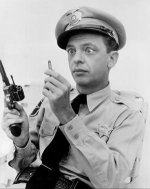BEIRUT ? Amid the ornate walls of Damascus' famed Omayyad Mosque, preacher Maamoun Rahmeh stood before worshippers last week, declaring Russian President Vladimir Putin a "giant and beloved leader" who has "destroyed the myth of the self-aggrandizing America."
Posters of Putin are popping up on cars and billboards elsewhere in parts of Syria and Iraq, praising the Russian military intervention in Syria as one that will redress the balance of power in the region.
The Russian leader is winning accolades from many in Iraq and Syria, who see Russian airstrikes in Syria as a turning point after more than a year of largely ineffectual efforts by the U.S.-led coalition to dislodge the Islamic State militants who have occupied significant parts of the two countries.
The reactions underscore that while the West may criticize Putin for supporting Syrian President Bashar Assad, there is some relief in the region at the emergence of a player with a coherent ? if controversial ? strategy.
"Putin does more than just speak," said Sohban Elewi of Damascus, summing up the views of Syrians on opposing camps who regard U.S. policy in Syria and Iraq as fumbled and confused.
Russia began its air campaign in Syria on Sept. 30, joining the fray of those bombing Syria at a critical time for Assad and his embattled troops. The Syrian army's loss of the northern province of Idlib opened the way for rebels to come dangerously close to the coastal Alawite heartland, leaving his soldiers there vulnerable and dejected.
Russia insists it is targeting the Islamic State group and other "terrorists." But Syrian rebels and opposition activists say Moscow's warplanes in recent days have focused on Idlib and the central province of Hama, hitting U.S.-backed rebels in areas with no IS militants.
The planes also have provided air cover for Syrian ground troops who launched an offensive in central Syria, reinforcing the belief that Russia's main aim is to shore up Assad's forces.
In addition to the warplanes taking off from a base in Latakia, Russian ships in the Caspian Sea have fired cruise missiles that fly nearly 1,500 kilometers (930 miles) over Iran and Iraq to strike Raqqa and Aleppo provinces, in what many see as a show of force meant to portray muscle more than serve a specific military goal.
Among Assad's war-weary and frustrated supporters, such elaborate displays of support provide a much-needed psychological boost, and have injected new hope that their flailing battle against rebel factions and the Islamic State group can still be won.
"The (Russian) intervention has raised the morale of the Syrian army and the Syrian people alike," said Dr. Samir Haddad from the central city of Homs.
"President Putin has a distinguished personality and charisma, and it has become clear that world leaders have gradually started approving, openly or secretly, of this intervention," he said.
In Iraq, where the U.S.-led war against IS has stalled, many say they want Russian airstrikes against IS to extend to their country.
Buried between paintings of Baghdad architecture, mosques and landscapes, some art shops in Baghdad have begun selling portraits of Putin, a tribute to his intervention in what Iraqis see as the new military front against IS.
"Russia does not play games. They are problem solvers, and they do it quietly and efficiently, not like the Americans who prefer to do everything in front of the cameras," said Hussein Karim, a 21-year-old medical student from Baghdad.
In one cartoon widely distributed among Iraqis on Facebook and Twitter, U.S. President Barack Obama is dressed as a Sunni sheikh, while Putin as a Shiite imam, suggesting the two are taking sides.
Another cartoon shows a bare-chested Putin holding IS leader Abu Bakr al-Baghdadi by the collar of his jalabaya, looking very intimidating. He says to al-Baghdadi: "Where do you think you're going? I'll flatten you like flour," a popular Iraqi expression.
Al-Baghdadi, holding a cellphone, shouts: "Obama, save me!"
Most of the cartoons portray Putin as muscular ? a perception that echoes the one at home in Russia, where he has cultivated an image as a man of action.
In addition to conducting his official





